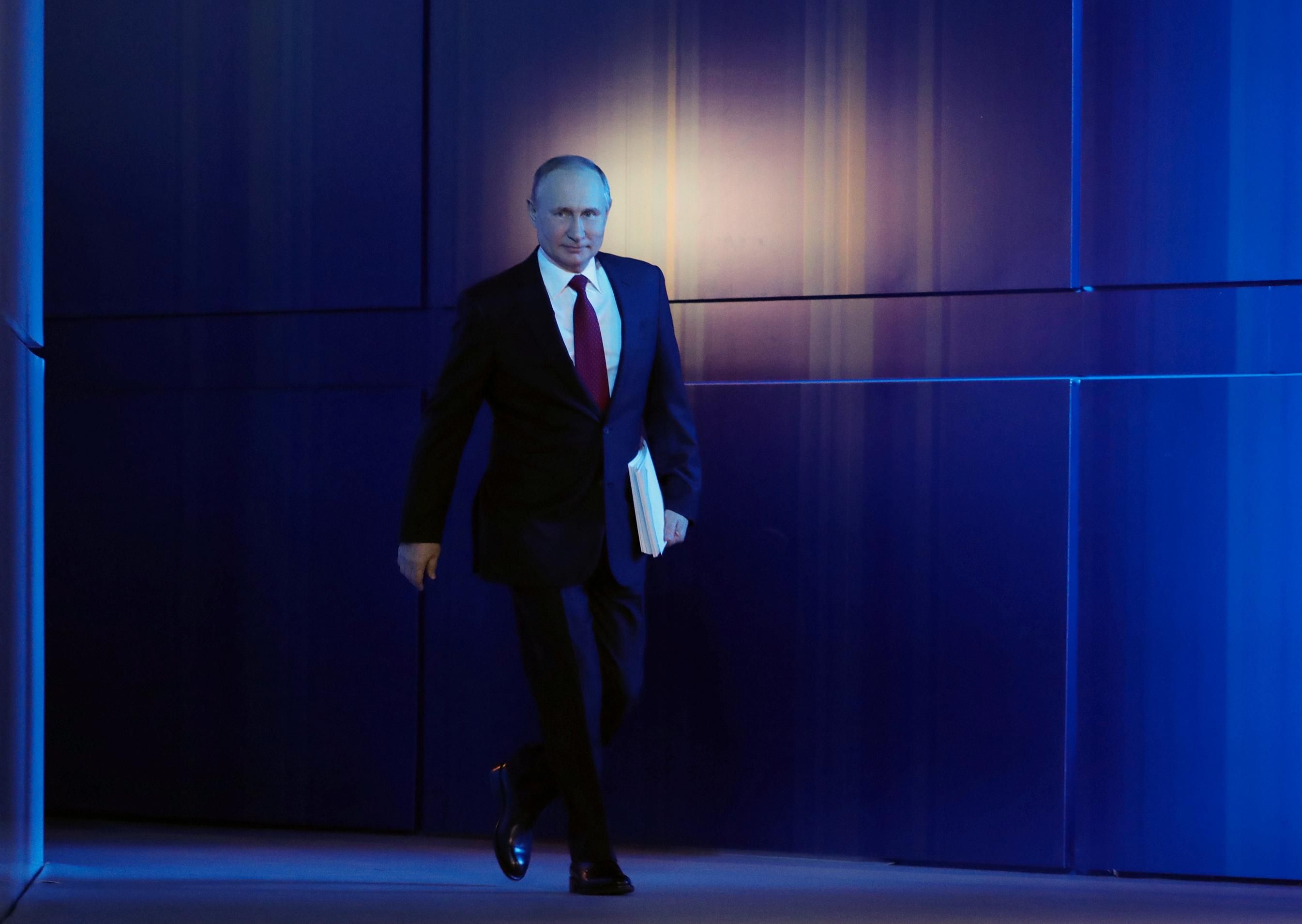What We're Watching: Putin's pasta concerns, Iran's mixed signals on nuclear deal, US-UK try for mini trade deal
Putin's pasta woes: In his annual press conference on Thursday, Russian President Vladimir Putin tackled a wide range of issues of interest to his country — and the world. As expected, Putin denied that his government meddled in the recent US election or poisoned Russian opposition leader Alexei Navalny. Putin also demurred on whether he'll run again for president in 2024, called on the US to extend the New START treaty on nuclear arms reduction, confirmed he hasn't taken the Sputnik V vaccine against COVID-19, and said that US President Donald Trump won't seek asylum in Russia because over 70 million Americans voted for him. Interestingly, throughout the four-hour live Q&A session the Russian leader seemed more upset about the rising prices of certain food items like pasta, which Putin had been ranting about all week (possibly to deflect attention away from a damning news report claiming that he has a 17-year-old daughter from an extramarital affair with a former cleaner who now has $102 million in assets). In the months to come, we'll be keeping a close eye on the price of spaghetti as a window into Putin's state of mind.
Iran's mixed signals on the nuclear deal: In a rare sign of unity between two leaders who often disagree on tone and policy, both Iran's President Hassan Rouhani and Supreme Leader Ali Khamenei expressed willingness this week to reenter the Iran nuclear deal should the US agree to remove crippling economic sanctions. It's the first indication that Khamenei, who calls the shots in Iranian politics, would be willing to resume direct negotiations with the West. Still, there are several domestic factors that might complicate efforts to return to the nuclear accord, abandoned by the Trump administration in 2018. First, hardliners in Iran's parliament recently passed a bill suspending UN inspections of its nuclear sites and giving the go-ahead to massively increase uranium enrichment unless the US lifts its sanctions by February. If this goes ahead, it's unlikely to inspire much goodwill from the incoming Biden administration, which will reenter the agreement, it says, only if the Iranians are fully transparent and cooperative. Additionally, Iranians head to the polls in June, which could give rise to a much more extreme executive body that rejects dialogue with the US entirely. The Supreme Leader, who has issued conflicting messages on the prospects of reentering the nuclear deal in recent months, clearly wants to keep his options open.
US-UK "mini" trade deal? As the UK and the EU continue to run out the clock on a Brexit trade deal, another agreement — albeit a somewhat pared-down version — could be in the works for Great Britain with its top trading partner: the United States. Both sides are now negotiating a compromise that involves reforms to the way the NHS pays for US medications, as well as other conditions. The move comes after the Brits last week broke with the EU on subsidies for European aerospace giant Airbus — a symbolic gesture since the UK is no longer part of the EU and therefore cannot put retaliatory tariffs of its own on the US for its assistance to its aerospace company, Boeing. Either way, the UK and its "cousins" on the other side of the Atlantic seem to be making progress on cutting mutual tariffs just weeks before the Trump administration gives way to President-elect Joe Biden. But that progress is no indication that a future US-UK trade agreement will be any easier under Biden, who's not eager to cut a quick deal and has four years to negotiate with London.
